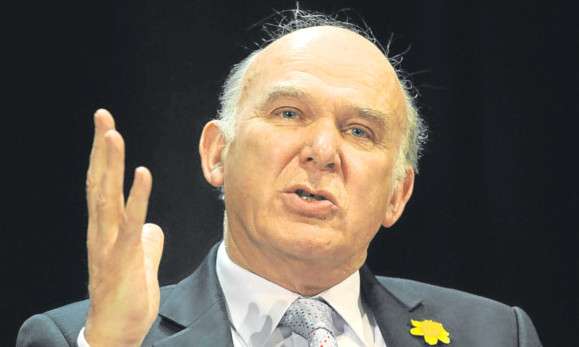
Scots using mobile phones south of the Border could be hit with expensive roaming charges if voters back independence, it has been claimed.
The warning comes in a new coalition paper being launched next week which suggests that independence would mean international roaming charges would apply to any calls made by Scots who travel to what’s left of the UK. Mobile phone users in the Borders and Dumfries and Galloway could also be hit by ‘inadvertent roaming’ where their phones connect to mobile masts in neighbouring England.
Industry sources yesterday confirmed the UK Government’s claims but warned the situation is likely to be overtaken by developments in the European Union. From tomorrow, the cost of making a call when overseas will drop to 20p a minute but EU lawmakers want to scrap the extra roaming charges altogether.
European Commission Vice President Neelie Kroes has said that by 2015 phone users should be charged no extra for making or receiving a call abroad than they would normally pay at home.
However, no agreement has yet been struck among EU members.
A senior source in the mobile phone industry said: “As things stand it is correct to say that roaming charges would apply if you were a Scot using your phone in England, the same as it would if you were in Spain or France now.
“Inadvertent roaming, where you are picking up the signal from another country, will also be an issue for those in the Borders or Dumfries and Galloway.”
The UK Government paper claims “people from one country using their handset in the other could incur international roaming charges when travelling.
“Callers on both sides of the border could inadvertently incur international roaming charges if their phone’s connected to a mast on the other side of the border.”
The paper, which will be launched by Business Secretary Vince Cable in Glasgow on Tuesday, will also claim Scots will be left with “poorer access to broadband, less reliable services and higher charges” if the UK telecoms market is split up.
Minsters will argue that investment in a standalone Scottish telecommunications network could be reduced because of the commercial challenges of serving a more thinly-spread population. Mr Cable will also reflect on the role of the Royal Mail in the event of a Yes vote, with a warning that creating a border between England and Scotland, “could impact on the cost of sending a letter”.
The Lib Dem cabinet minister will also point out that the existing six days a week ‘universal’ service goes beyond the EU minimum standard of five days a week.
Consumer Minister Jo Swinson said: “If Scotland left the UK, posting a letter or making a call may cost more and there could be less choice for customers.”
“The government is committed to maintaining world class postal and broadband services. This includes continuation of a six-day-a-week postal delivery service and the provision of broadband to rural areas.”
A Scottish Government spokeswoman said: “The reality is, successive Westminster Governments have weakened our communications infrastructure.
“People across rural Scotland regularly struggle with the lack of mobile phone coverage as the current system fails to deliver for Scotland.
“We’d ensure postal services continue in a similar way to the current UK-wide system.”

Enjoy the convenience of having The Sunday Post delivered as a digital ePaper straight to your smartphone, tablet or computer.
Subscribe for only £5.49 a month and enjoy all the benefits of the printed paper as a digital replica.
Subscribe